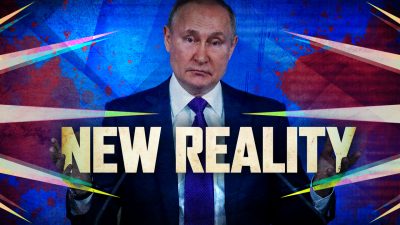Russia Outflanked. The Crisis in Kazakhstan. The Destabilization of the Russian Federation?

All Global Research articles can be read in 51 languages by activating the “Translate Website” drop down menu on the top banner of our home page (Desktop version).
To receive Global Research’s Daily Newsletter (selected articles), click here.
Visit and follow us on Instagram at @globalresearch_crg.
***
Just as the Kremlin had steeled itself to face down the West over Ukraine, Washington initiated the destabilization of Kazakhstan on Russia’s central Asian border. At this time it is unclear how serious the situation is, but the Collective Security Treaty Organization (CSTO) consisting of Russia, Belarus, Kyrgyzstan, Tajikistan, Armenia, and Kazakhstan have sent troops in response to the Kazakh government’s request for help.
Now the Kremlin finds itself with troubles on two fronts.
Unlike the overthrow of Ukraine, which the Kremlin was too preoccupied with the Sochi Olympics to prevent, the Kremlin responded quickly to the attempt to overthrow the Kazakh government.
The main lesson for the Kremlin is that Washington could not care less about the Kremlin’s security concerns. Just a couple days before Biden and Putin are scheduled to resolve the Ukraine situation, another former Soviet republic goes into chaos. The largest city is burning and there is disorder throughout the country. See this. It is impossible to believe that the widespread violence spontaneously erupted. The CIA is at work.
Russia was set up for destabilization by Washington’s breakup of the Soviet Union in the 1990s. Numerous former Russian provinces are now independent states. The separations removed Russians from power in the new independent republics, but the CIA remained.
The Kremlin, fearful of confirming Western propaganda about Russia, has kept its hands off its former provinces, but Washington has not. Even inside Russia herself the Kremlin has demonstrated its commitment to democracy by permitting Western-financed NGOs to operate in Russia, creating pockets of opposition to the Russian government.
I suspect that Washington will, without being hard-nosed about it, refrain from accommodating the Kremlin’s security concerns, having made the Kremlin aware that Washington can create Maidan revolutions in all of the former Soviet republics.
Washington prefers for the Ukraine to remain a festering wound, which eventually will be resolved by Russian intervention or by NATO membership for Ukraine. Either way Washington wins. A Russian invasion of Ukraine would confirm the propaganda that a Russian threat hangs over Europe. NATO membership for Ukraine would indicate Russian submission to Washington’s hegemony.
In my view, it was a strategic error for the Kremlin to bank on diplomacy and Western good will. Perhaps Russian elites were unable to take seriously Washington’s intent to destabilize the Russian Federation in the interests of Washington’s hegemony.
The question that remains is what is the point of next Monday’s meeting between Putin and Biden?
*
Note to readers: Please click the share buttons above or below. Follow us on Instagram, @crg_globalresearch. Forward this article to your email lists. Crosspost on your blog site, internet forums. etc.
Dr. Paul Craig Roberts writes on his blog site, PCR Institute for Political Economy, where this article was originally published. He is a regular contributor to Global Research.

